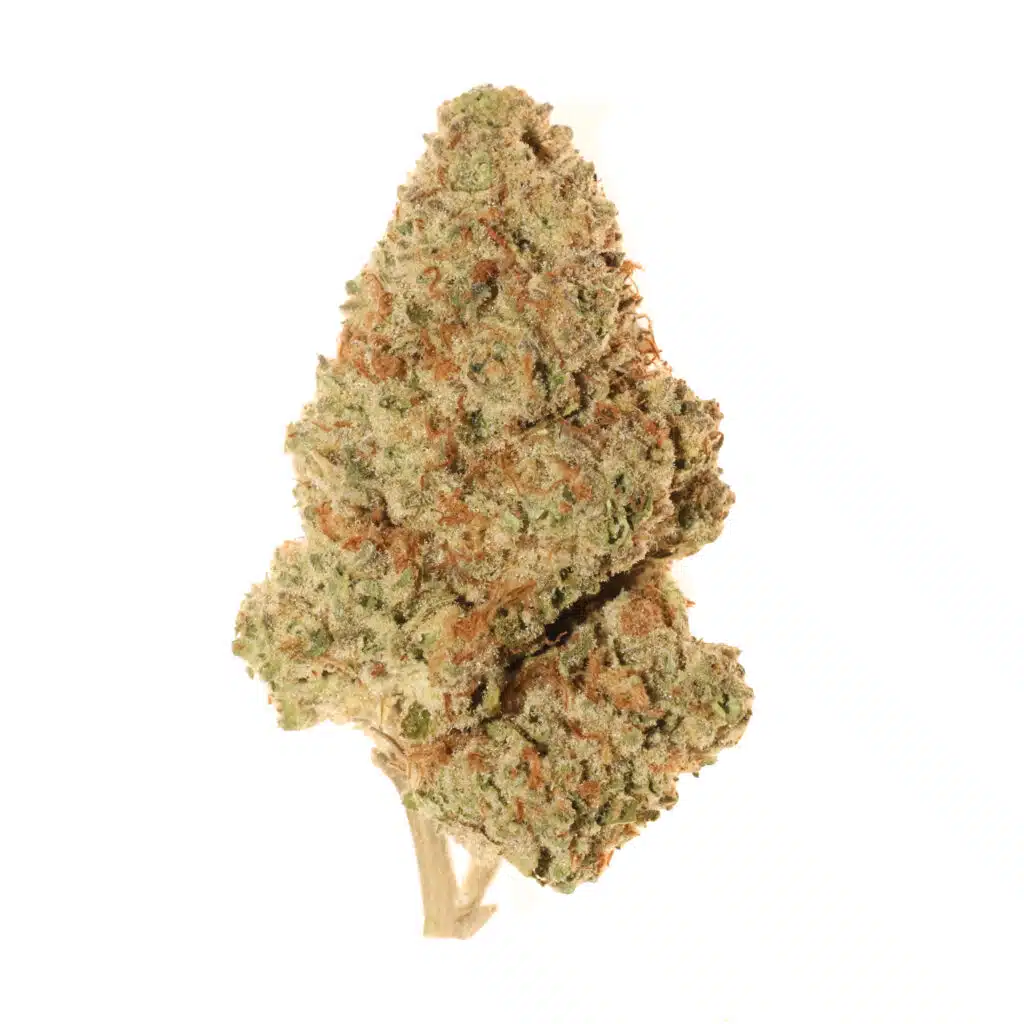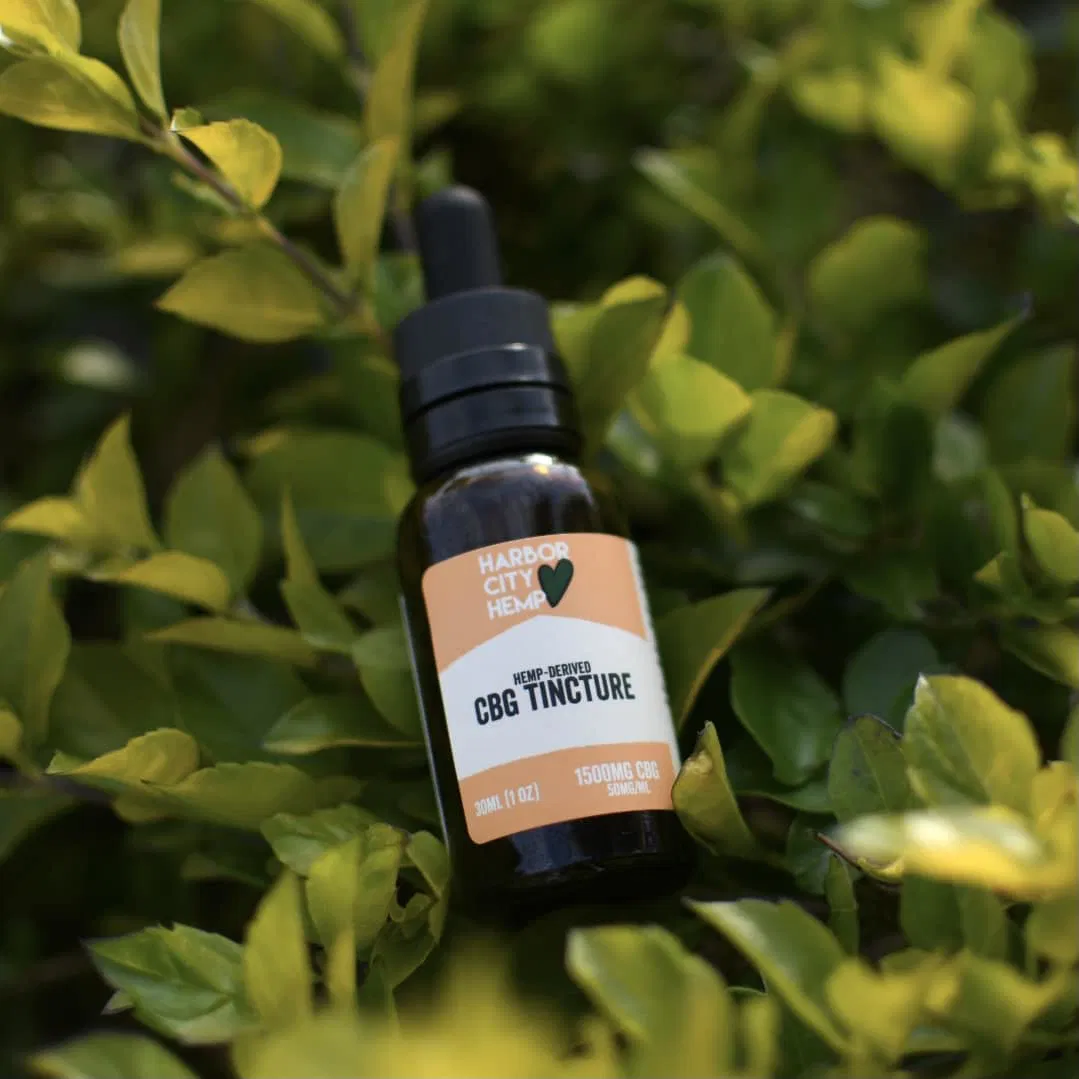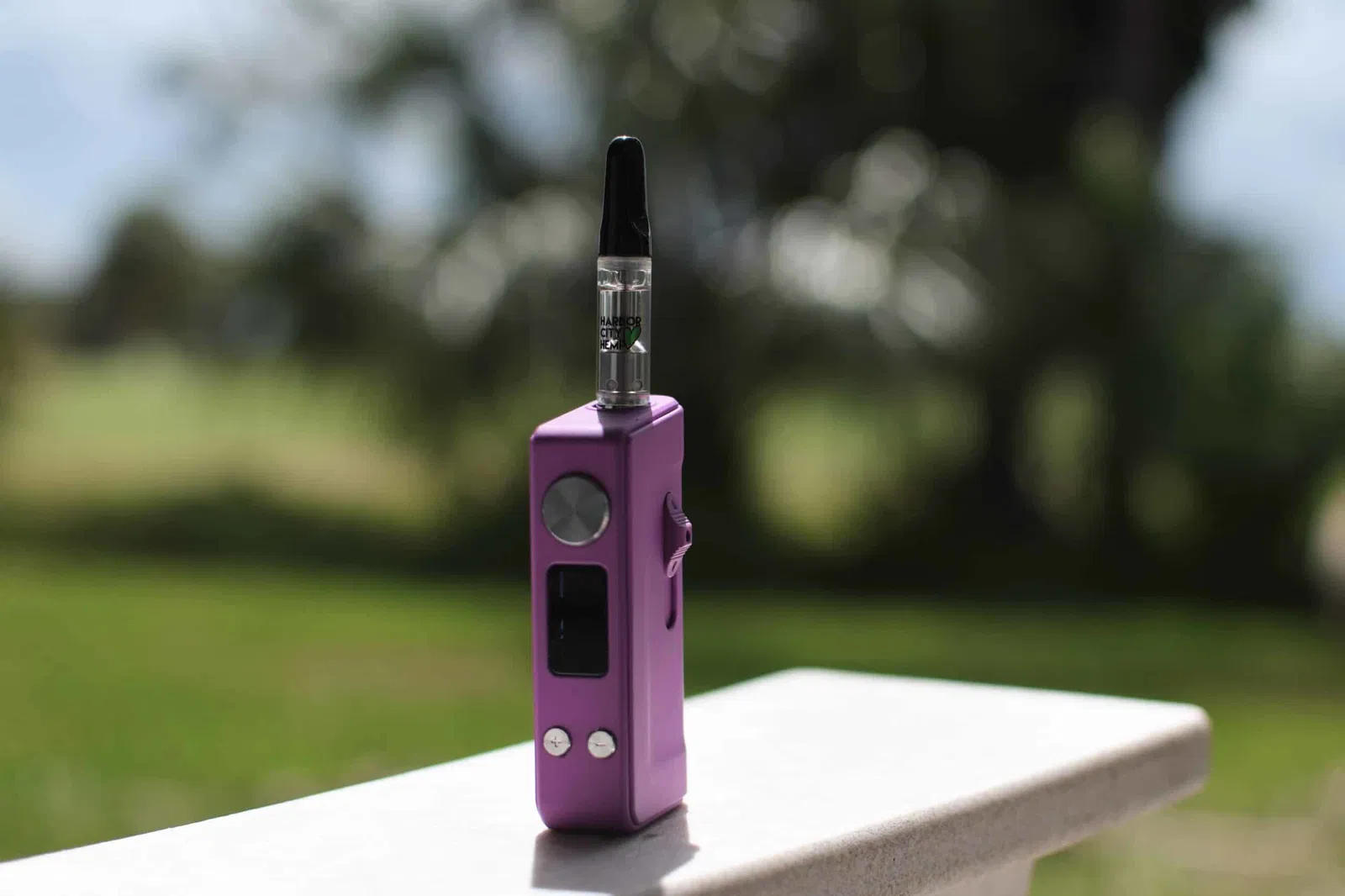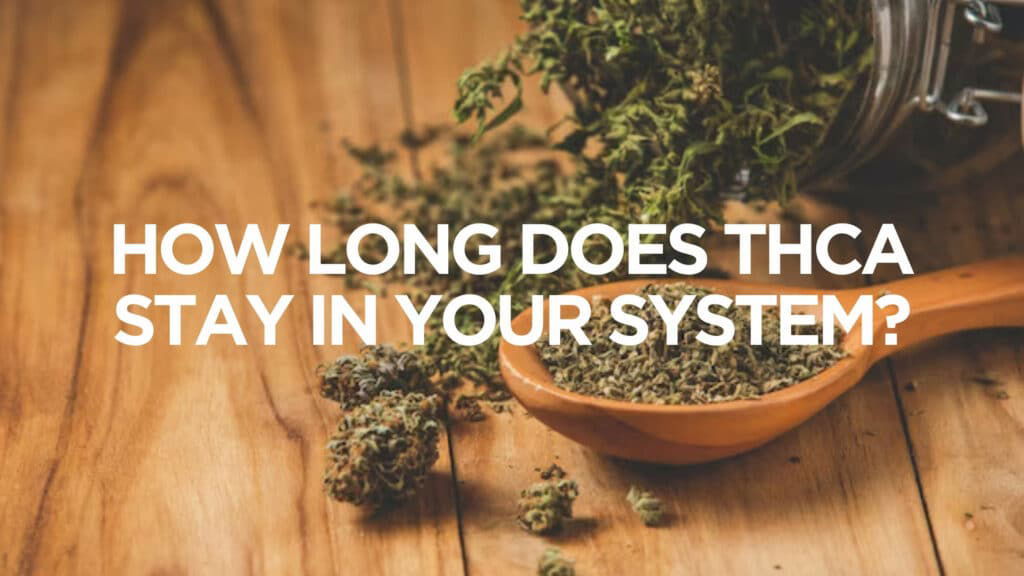In the captivating realm of cannabis lies a secret worth uncovering: THCA. This intriguing compound remains in the shadows, eclipsed by its more famous counterpart, THC. Yet, the real mystery lies in how long THCA lingers within your system.
Understanding THCA’s duration in your body is more than just curiosity, it’s the key to informed choices. Whether you’re a cannabis enthusiast, a medical marijuana user, or navigating drug testing waters, this knowledge empowers you. It guides responsible consumption, informs legal considerations, and enhances personal well-being.
In this article, we’ll delve into THCA, unraveling its origins and how it interacts with the body’s metabolism. We’ll also investigate the factors that determine how long THCA remains detectable in your system, explore its presence in bodily fluids, and discuss potential legal considerations.
What Is THCA?
THCA, or tetrahydrocannabinolic Acid, is a fundamental component of the cannabis plant. Think of it as the precursor to THC (Tetrahydrocannabinol), which is responsible for the psychoactive “high” associated with cannabis consumption. However, unlike THC, THCA doesn’t produce intoxicating effects in its natural state.
THCA is the raw, unprocessed form of THC found in fresh cannabis buds. But when exposed to heat, such as through smoking or vaping, it undergoes a chemical transformation, converting it into THC and unlocking its psychoactive potential.
THCA Vs. THC
When it comes to cannabis consumption, it’s crucial to tell THCA apart from THC. These two cannabinoids are closely related, but they have distinct properties and effects. While THCA shares some common traits with THC, there are significant differences that make it stand out in the world of cannabinoids.
Psychoactivity
Perhaps the most critical distinction lies in psychoactivity. THC is the primary psychoactive compound causing the euphoric “high” associated with cannabis use. In contrast, THCA remains non-intoxicating until subjected to heat. This means that consuming raw cannabis, rich in THCA, won’t induce the traditional “high” effects.
Medicinal Potential
While both THCA and THC exhibit potential therapeutic benefits, THCA has garnered attention for its non-psychoactive attributes. Some research suggests that THCA may possess anti-inflammatory, neuroprotective, and anti-emetic properties, making it a promising candidate for various medical applications.
Consumption Methods
THCA and THC also differ in terms of consumption methods. Today, there are a wide variety of THC products, offering different consumption methods like smoking, vaping, or cooking (as in edibles). In contrast, THCA is primarily consumed in its raw form, typically through juicing or using fresh cannabis leaves in salads and smoothies.
Legality
The legal status of THCA and THC can vary depending on your location. In some regions, THCA is not explicitly regulated due to its non-intoxicating nature in raw form. However, the moment heat is applied to convert THCA into THC, legal considerations can change significantly, as THC is often subject to strict regulations.
How Is THCA Formed in the Cannabis Plant?
Understanding the process of THCA formation within the cannabis plant sheds light on its intriguing journey from humble beginnings to its potential as a therapeutic compound.
THCA starts its life as CBGA (Cannabigerolic Acid), which is often considered the “stem cell” of cannabinoids. CBGA is a precursor to not only THCA but also other major cannabinoids like CBDA (Cannabidiolic Acid) and CBCA (Cannabichromenic Acid).
The journey towards THCA begins when enzymes in the trichomes (the resinous glands of the cannabis plant) convert CBGA into CBGVA (Cannabigerovarinic Acid).
As the plant matures, CBGVA undergoes a transformative process, catalyzed by heat, ultraviolet light, or time. This process, known as decarboxylation, removes a carboxyl group from CBGVA and creates THCA.
This intricate process highlights the dynamic chemistry of the cannabis plant and the role of enzymes and environmental factors in the final cannabinoid profile. Understanding how THCA is created provides valuable insights into its potential therapeutic properties and the nuances of cannabis cultivation.
What Are the Potential Benefits of THCA?
While research is still in its early stages, there’s growing evidence suggesting that THCA may offer various potential benefits.
Anti-Inflammatory Properties
THCA shows promise as an anti-inflammatory agent. Inflammation is at the root of many chronic diseases, and THCA’s potential in mitigating inflammation could have far-reaching implications for conditions like arthritis, inflammatory bowel disease, and more.
Neuroprotective Effects
Some studies suggest that THCA may have neuroprotective properties, which means it could help protect nerve cells from damage or degeneration. This quality has sparked interest in its potential applications for neurodegenerative conditions like Alzheimer’s and Parkinson’s disease.
Anti-Nausea and Anti-Vomiting
THCA may be effective in reducing nausea and vomiting, making it a potential aid for patients undergoing chemotherapy or dealing with other medical treatments that induce these symptoms.
Appetite Stimulation
Much like THC, THCA may have appetite-stimulating effects, potentially offering relief to individuals with appetite-related issues, including those experiencing wasting syndrome.
Pain Management
Preliminary research suggests that THCA could play a role in pain management. Combined with its non-intoxicating nature, THCA becomes an attractive option for those seeking pain relief without overwhelming psychoactive effects.
Antioxidant Properties
THCA is believed to have antioxidant properties, which could help combat oxidative stress in the body. This quality is significant in addressing various health conditions associated with oxidative damage.
Note that while these potential benefits are exciting, further research is needed to fully understand THCA’s therapeutic capabilities.
Additionally, the effectiveness of THCA can vary depending on the specific condition, dosage, and individual factors. As the scientific community continues to explore THCA’s potential, it may find a valuable place in the realm of natural medicine, offering new avenues for health and well-being.
How Is THCA Metabolised in the Body?
The journey of THCA inside our bodies starts with its absorption and distribution in the bloodstream. When cannabis containing THCA is consumed, the cannabinoids are absorbed through the mucous membranes of the mouth, lungs, or digestive tract.
Once absorbed, THCA enters the blood and embarks on a rapid journey throughout the body. Its lipophilic nature allows it to readily bind to fat molecules and cell membranes, facilitating its distribution to various tissues and organs.
Once in the bloodstream and potentially converted to THC, THCA interacts with the endocannabinoid system (ECS), a complex network of receptors, enzymes, and endocannabinoids naturally produced by the body.
THCA, like THC, can bind to cannabinoid receptors in the ECS, primarily CB1 and CB2 receptors. This interaction influences various physiological processes, including mood, appetite, pain perception, and immune response.
Research suggests that it may modulate the ECS, contributing to its anti-inflammatory, analgesic, and neuroprotective effects. However, the precise mechanisms of THCA’s interaction with the ECS and its therapeutic potential require further exploration.
Factors Influencing the Duration of THCA Effects
Several factors impact how long THCA stays in the body:
Frequency and Amount of THCA Consumption
The duration of THCA in your system is significantly influenced by how often and how much you consume these products. Regular users who consume larger quantities are likely to have THCA accumulate in their system over time. On the other hand, occasional or low-dose consumers may experience quicker elimination.
Method of Consumption
How you consume THCA plays a pivotal role in its longevity within your system. Smoking or vaporizing THCA leads to rapid absorption through the lungs and a quicker onset of effects but also faster elimination.
In contrast, when using edibles, it takes longer for cannabinoids to kick in but can result in an extended duration in your system.
Individual Factors
Individual factors such as weight, gender, and metabolism rate can significantly impact how long THCA remains detectable. Those with faster metabolisms tend to process THCA more swiftly, while body mass can affect the storage of cannabinoids. Genetic factors may also influence how efficiently your body breaks down and eliminates THCA.
Purity and Potency of the THCA Product
The purity and potency of the THCA product you consume matter. Highly concentrated THCA products can lead to higher levels of the compound circulating in your system. Additionally, impurities or contaminants in the product may prolong the duration of THCA’s presence due to potential interactions with the body.
Other Potential Factors
Factors such as hydration and diet can also play a role. Staying well-hydrated can aid in the elimination of THCA through urine, while dehydration may slow down the process. A balanced diet with essential nutrients can support metabolic functions that affect the metabolic process of THCA.
What Are the Detection Methods for THCA?
The detection of THCA in your system primarily relies on drug tests and screening procedures designed to identify the presence of cannabinoids in biological samples. This may include urine, blood, saliva, or hair tests. Each method targets different time frames for detecting THCA.
Urine Tests
Urine tests are the most frequently used method for detecting THCA. They are often employed in workplace drug testing and legal contexts. These tests look for the presence of THCA-COOH, a metabolite of THCA, which can be detectable in urine for an extended period after consumption.
The detection window in urine tests can vary but generally ranges from several days to several weeks, depending on factors such as frequency and quantity of THCA consumption.
Blood Tests
Blood tests are less common for THCA detection but are sometimes used in situations concerning recent impairment, such as in DUI cases. THCA is detectable in the bloodstream shortly after consumption, typically within a few hours to a day, but its presence diminishes relatively quickly.
Saliva Tests
Saliva tests are becoming more prevalent due to their non-invasive nature. They’re primarily used to detect recent THCA consumption, typically within hours to a day after use. Detection windows in saliva tests are relatively short compared to urine tests.
Hair Tests
Hair tests are capable of detecting THCA over a more extended period, sometimes spanning several months. However, they are less commonly used for THCA detection, as they are more effective in identifying long-term drug use.
Understanding the detection methods and their respective detection windows is crucial. It helps individuals anticipate the potential outcomes of drug tests and make informed decisions regarding THCA consumption in situations where drug testing may be a concern.
Harbor City Hemp: Your Trusted Online Cannabis Store
At Harbor City Hemp, our commitment is to provide top-notch hemp products, including THCA products, all while maintaining fair pricing. If you’re looking to indulge in delicious treats and have a wonderful time, you’ve come to the perfect place.
Our core mission is to provide top-tier hemp products that are not only of exceptional quality but also affordable. That’s why we’re proud to introduce the Harbor City Hemp Discount Program, offering up to 30% discount to individuals with long-term disabilities, those with low-income backgrounds, and honored U.S. veterans.
We work hard to ensure that our products are accessible to everyone, fostering a community where the benefits of hemp can be enjoyed by all. Now let’s introduce you to two of our best THCA products:
Maui Wowie THCA Flower (Greenhouse+)
Experience the allure of Maui Wowie, a renowned sativa cannabis strain born from the union of Hawaiian genetics and an undisclosed strain. Grown in our Greenhouse+ environment, this strain embodies the essence of Hawaii, delivering a flavorful escape.
Maui Wowie is celebrated for its distinct pineapple, citrus, and sweet notes, transporting users to its Hawaiian origins. With a robust 22.13% THCA content and total cannabinoids at 23.83%, it offers a potent experience.
This sativa strain’s effects are both mild and invigorating, encouraging creativity and high-energy euphoria. Whether you seek a mental journey or an active day outdoors, Maui Wowie is your companion.
Rest assured, our Maui Wowie THCA Flower undergoes meticulous lab testing for potency and quality. Compliant with federal regulations, this product contains a Delta-9 THC concentration below 0.3% on a dry weight basis.

Blueberry Muffin THCA Flower (Greenhouse+)
Indulge the delightful Blueberry Muffin THCa Flower (Greenhouse+), an exceptional Indica-dominant hybrid resulting from the fusion of Blueberry and Purple Panty Dropper strains, masterfully crafted by Humboldt Seed Co. This strain is a visual marvel, boasting evenly structured buds adorned with unique purple accents.
Blueberry Muffin’s defining feature lies in its irresistible flavor profile, reminiscent of freshly baked muffins. Immerse yourself in the sweet notes that evoke the aroma of warm, just-out-of-the-oven treats, all delicately balanced with a velvety, creamy finish.
As an indica hybrid, Blueberry Muffin delivers a soothing and euphoric experience, making it ideal for relaxation and stress relief. With a substantial THCA content of 21.77% and a total cannabinoid profile of 23.39%, this strain ensures a gratifying journey for those seeking tranquility and flavor.
The Blueberry Muffin THCa Flower is cultivated in our advanced Greenhouse+ environment, representing the pinnacle of quality and purity. Their top-notch quality stands as a true testament to our commitment to excellence.
Indulge in the delectable essence of Blueberry Muffin and let it cradle your senses in relaxation. With each inhale, savor the sweet symphony of blueberry, earth, and vanilla notes.
Final Words
In the world of hemp and cannabinoids, knowledge is key, and understanding the nuances of various hemp products can make all the difference in your journey.
THCA is a fascinating cannabinoid that offers the therapeutic benefits of THC without the intense psychoactive effects, allowing users to enjoy a relaxing and safe experience. However, it’s important to note that the effects of THCA can differ from one person to another, depending on personal factors, and the consumption method.
With a solid grasp of THCA, now you’re equipped to make informed choices that align with your individual needs and preferences.
THCA FAQs
What Is THCA, and How Does it Differ from THC?
THCA differs from THC in that it doesn’t produce the typical u0022highu0022 associated with THC. That said, after undergoing decarboxylation, often through heat or combustion, it converts into THC and becomes psychoactive.
What Are the Potential Therapeutic Benefits of THCA?
THCA may have anti-inflammatory, neuroprotective, and antiemetic properties. Some users also report it helps with conditions like arthritis, pain management, and nausea. That said, still more large-scale research is needed to confirm these medicinal effects.
How Long Does THCA Stay in Your System?
The duration of THCA in your system can vary based on factors such as the method of consumption, individual metabolism, and frequency of use. Generally, THCA’s presence in urine can be detected for several days to several weeks, while in blood and saliva, it may be detectable for hours to a day.
Is THCA Legal and Can I Purchase it Online or in Stores?
The legal status of THCA can vary depending on your location and local regulations. In some areas, it may be legal to purchase THCA products derived from hemp, while in others, it may be restricted or subject to specific regulations. It’s essential to research and understand the legality of THCA in your region before purchasing or using THCA products.




